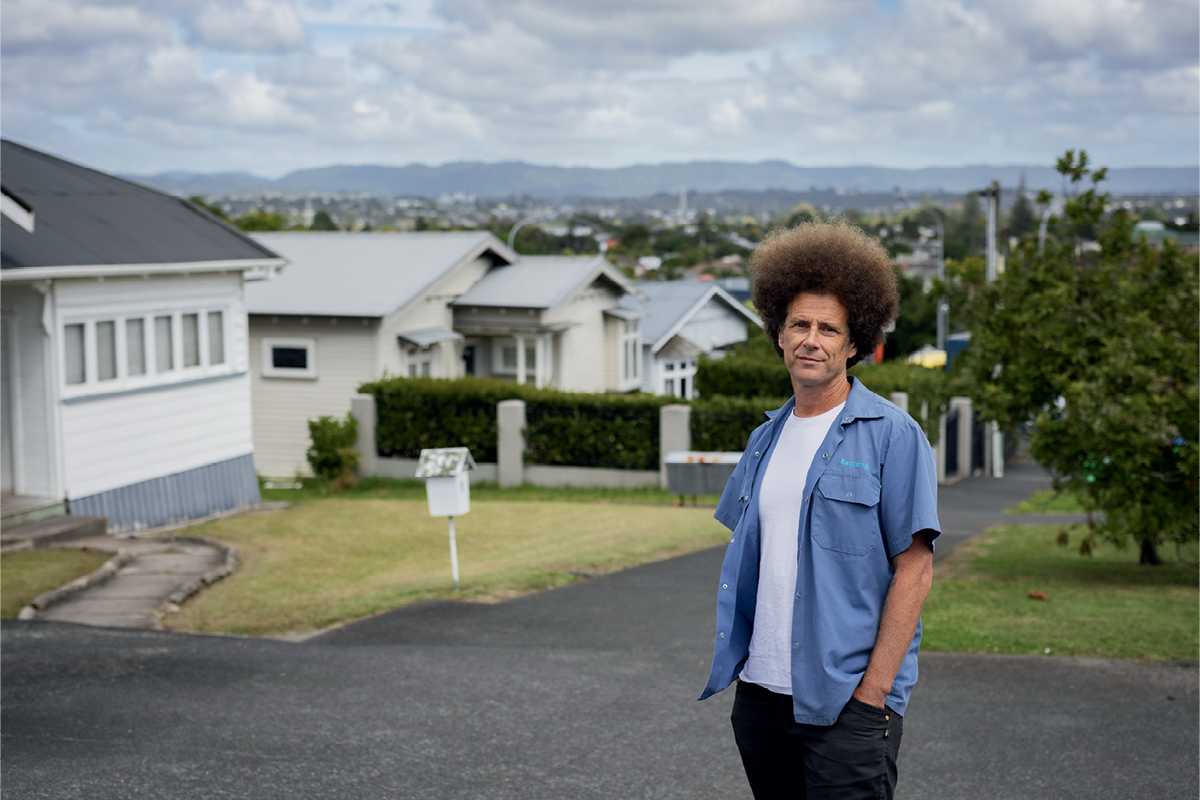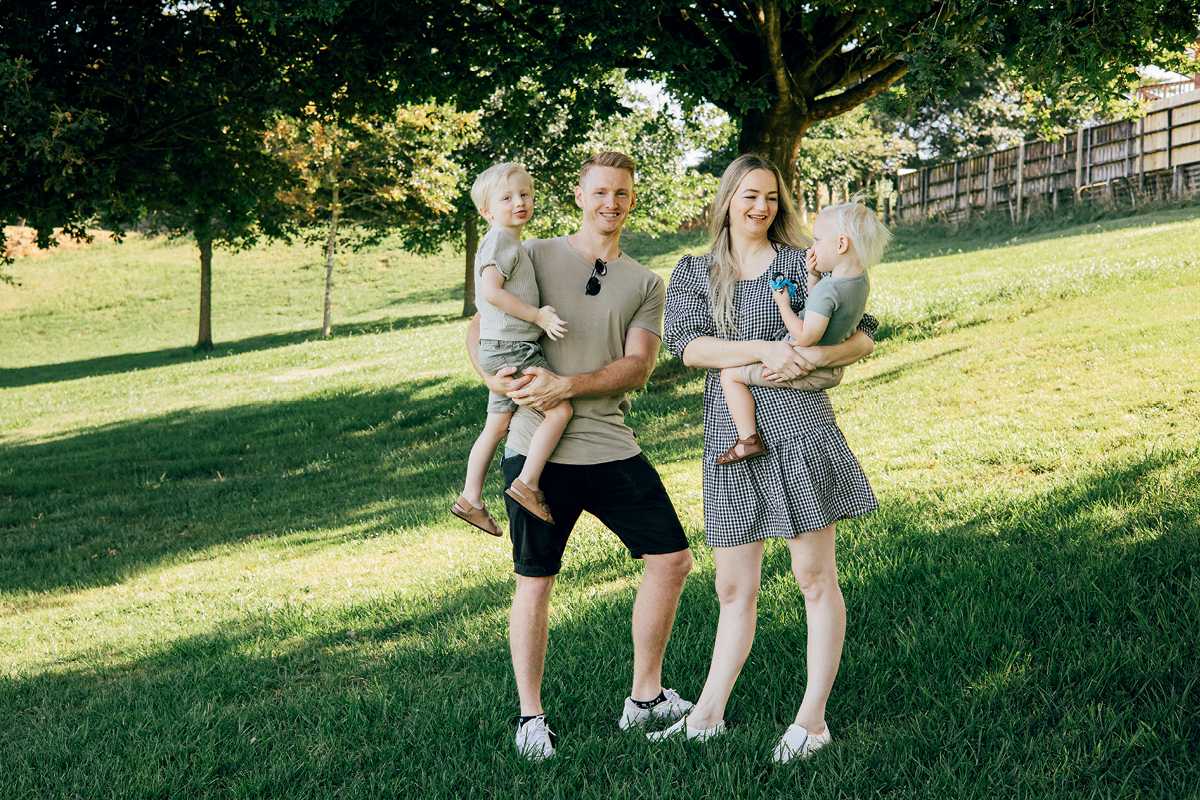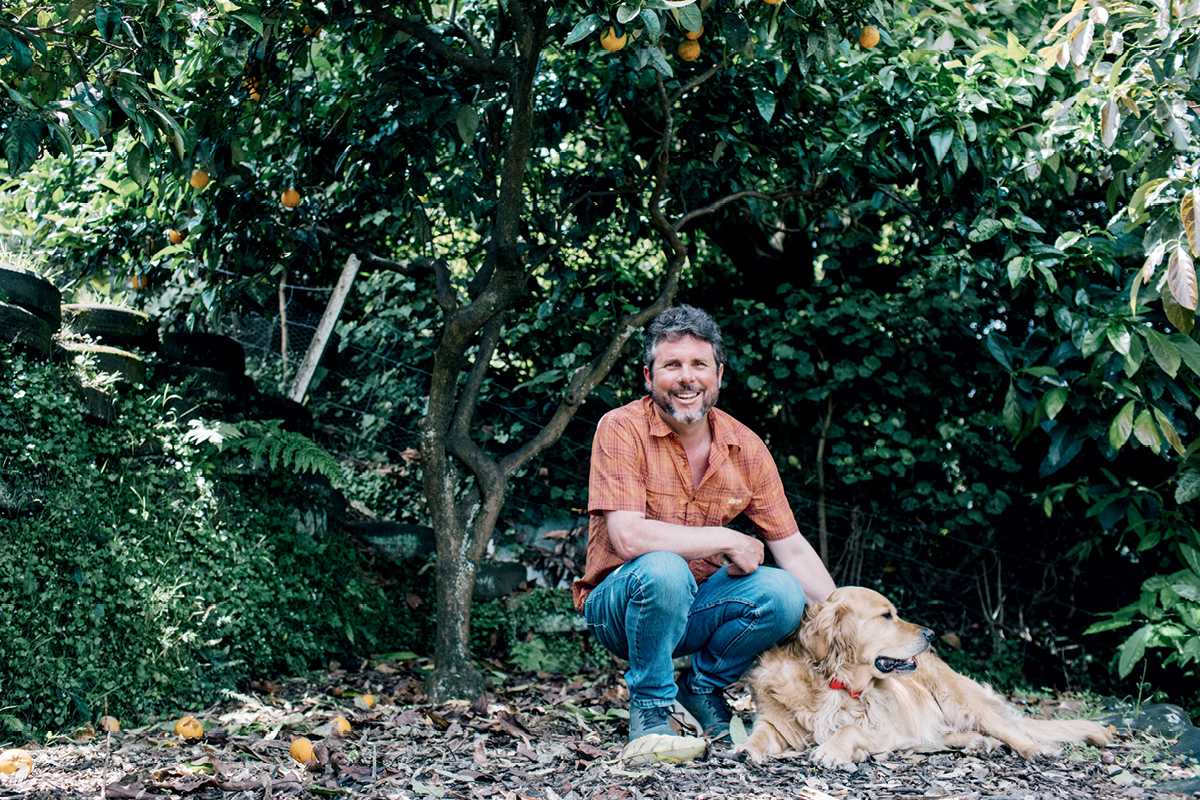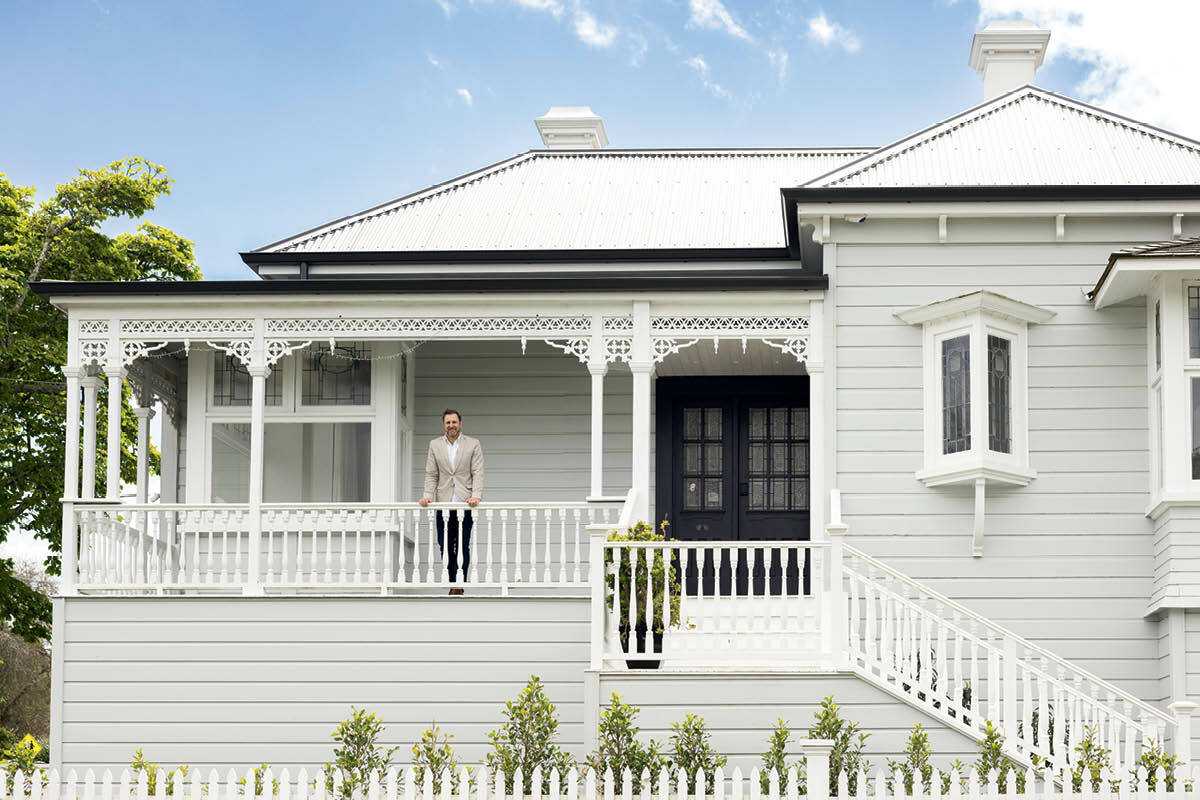
It’s All About Connections
Shaun McGivern has used his network of friends, family, property association members and others to create an impressive portfolio, writes Joanna Mathers. Photography Stephanie Creagh
24 October 2023
Connections are the lifeblood of successful property investors. Be they real estate agents, property finders, or other investors, a strong network of those in the know can propel investors to great heights.
Shaun McGivern has used his network of friends, family, property association members and others around him to create an impressive portfolio. His strategies are innovative (sometimes daring), but he started small and has built up his portfolio over time. And he’s continuing to innovate and expand, creating wealth along the way.
McGivern comes from a family of investors. His parents and grandparents used buy-and-hold and renovation strategies to accumulate portfolios, his father has also dabbled in subdivision and working as a real estate agent.
Growing up in Mt Albert, McGivern excelled at cricket and rugby. But, as he explains, property investment was always on the radar. “I loved Monopoly,” he laughs.
His dad renovated houses and when he was old enough, “he put me on the end of a paintbrush”.
“I loved that process of transformation. How the room would change in front of me.”
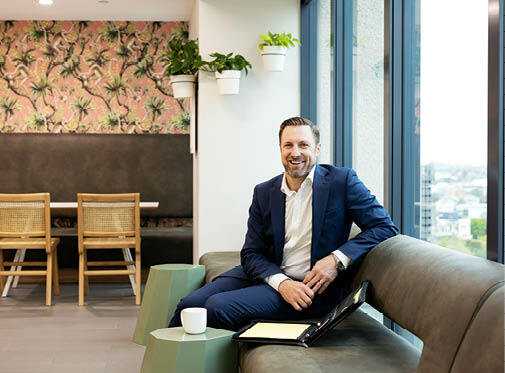
McGivern has created an impressive portfolio with his network of family, friends, PIA members and others.
World Of Law
McGivern’s mum was a legal executive in the commercial and property team of a city firm, and he, too, was drawn to the world of law. So, after he left Auckland Grammar he moved to Dunedin and enrolled in a law degree at the University of Otago.
He moved back to Auckland after graduation, taking a job in a law firm specialising in commercial and property law. It was here he began to garner all the advice he could from property investors he worked with.
“I remember this one old guy, he said to me ‘I can’t buy everything, so I am happy to help’. He gave me an agent’s details and it started from there.”
Fresh from university in 2003, McGivern didn’t have much earning power. Neither did his mate (and future brother-in-law) Andrew (also a graduate). So, McGivern’s dad suggested they should join forces and start saving for their first property.
They set up a loss attributing qualifying company (LAQC), started to save a deposit, and looked for their first venture.
“We looked through a lot of crap,” he recalls.
Eventually they came across a mortgagee sale in Manurewa; a former state house that was on the market for $147,000 in 2003.
The house had been owned by someone who’d got into trouble during a renovation. It was in such a bad state that no-one was allowed to enter the property, but Andrew and McGivern jumped the fence when no-one was about and had a look.
“It turned out there were actually four bedrooms; it had been advertised as three.”

Hidden Treasures
This changed the equation significantly. They had been basing their yield projections on $240 a week (the price for a three-bedroom home in the area at the time). But that extra bedroom would bring them $300, a significant increase.
Investors needed a 20 per cent deposit at the time, so they each parted with $14,700 and purchased the house.
When they entered the property they realised why it had sold for so little. “Our legs were covered in fleas. There were holes in the walls and doors. It was a total pigsty.”
But it was a house with hidden treasures. On pulling up the (very soiled) floor, they discovered beautiful rimu. Unsightly fake brick board hid brand new weatherboard.
The reno process took two months to complete. “We did it all ourselves,” says McGivern. “We would go after work and on the weekends to complete the job.”
The renovation only cost $12,000. McGivern had read a book suggesting you shouldn’t spend more than 10 per cent of the sale price on a renovation. After the reno it was revalued at $220,000, so they held it; it would go on to give them their next deposit.
Uk Venture
In 2004, McGivern left New Zealand for London, where he worked for a big international law firm. He returned in 2008, keen to purchase a new property with the equity that had been accrued in the Manurewa rental.
Andrew joined him again for this new venture, in 2010. The home they found was another mortgagee sale in Manurewa, which they purchased at auction for $255,000 (well under market value).
The former owner had kept the house very clean and tidy, so they decided to keep her on as a tenant. She did keep the house clean, but there were other issues that ended up at the Tenancy Tribunal a few times.
The following year he was alerted by his father-in-law (another real estate agent) about a property for sale in West Auckland. The Te Atatu house and income was on the market due to a divorce, but he thought it would not be in the right price range.
Later, his father-in-law revealed there had been no takers on the house, so he and his buying partner offered $615,000, which was accepted.
Unfortunately, some subsequent tenants would prove troublesome. They had been self-managing, but it turned out drugs were being used in the house and traces of P were detected. They worked out a way to legally remove the tenants, but not without a few hair-raising incidents involving gangs.
“After this, we realised we really couldn’t self-manage anymore. We were drowning. We were both busy with our careers and our young families, so we decided to start using managers for all our properties.”

Long-time Auckland PIA member McGivern has found inspiration and support from fellow members.
Townhouses
McGivern is a partner (specialising in property) at Haigh Lyon in Auckland. This role has put him in front of many property investors with experience in several fields. It’s also brought opportunities across his desk, such as a distressed block of townhouses in Ponsonby throught to be leaky and needing significant remedial work that would cost millions.
It piqued his interest, so he took his father, a former plasterer, to view the townhouses and assess the damage. “He had a look and told me he didn’t think the units were as bad as the assessor had said,” says McGivern. An associate approached the owners and advised that they didn’t agree with the original assessment and that he, and a group of associates McGivern put together, would be happy to purchase the units if the price was right. “It was risky because there was a chance that the cost-effective repairs we had in mind wouldn’t work,” says McGivern. “But they did.”
Two of the Manurewa properties were sold to fund the purchase of three of the units. They were made watertight, well under the initial quote. The values shot up immediately.
This strategy that has been repeated by McGivern and his associates: finding distressed units or townhouses that are thought to need millions in repairs due to perceived risk; buying well under market value; then repairing and adding significant value.
They have repeated the formula for a group of houses in Te Atatu. He is currently working on another group venture, a refurbishment of a 42-unit block in Avondale, with his wife Sarah, and a group of investors he has put together. “We used the equity in our house to purchase three houses in Te Atatu and another in Avondale” he says. “Sarah was keen to do something with me; after seeing me do so many other ventures with Andrew.”
He admits that there is some risk involved in this strategy: “If we get our assesments wrong we will be paying large sums for reparations. Fortunately our assesments have been correct.”
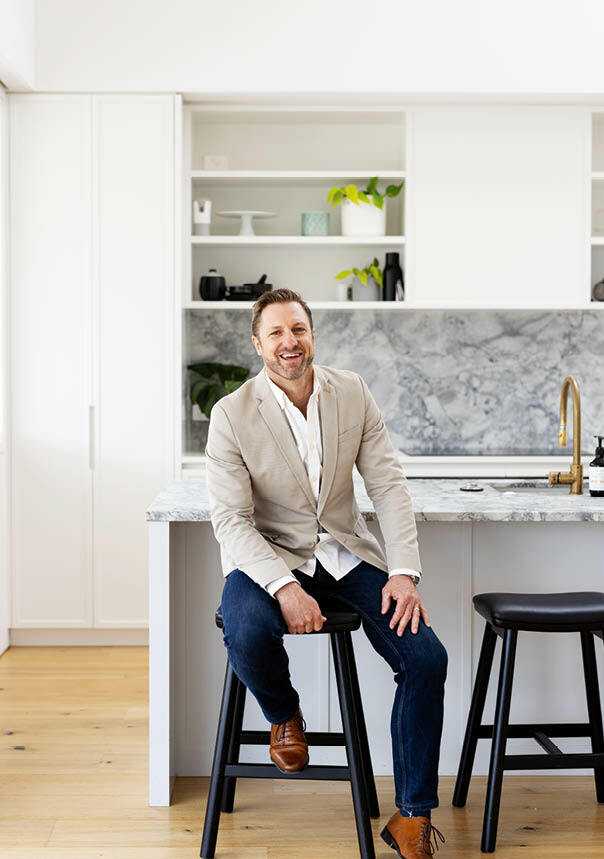
Paradise Found
Alongside the Avondale development, McGivern has also bought an olive grove by the sea in Northland with 12 titles, on which he and his friends will have holiday homes. “It’s going to be like a mini commune,” he laughs. “It’s an untouched paradise, found by a friend.”
Starting with under $15,000, McGivern has amassed a property portfolio of over $25 million. He attributes much of his success to the web of contacts and relationships he has built over the years.
As a long-time member of Auckland Property Investors’ Association, he has found inspiration and support from the network of members. Exposure to other property investors is invaluable, he says, and of great use to those starting their investment journey. He is also keen to support others on their journey.
“It’s like what that old man said, all those years ago: ‘I can’t buy everything, so I’m happy to help.’”
